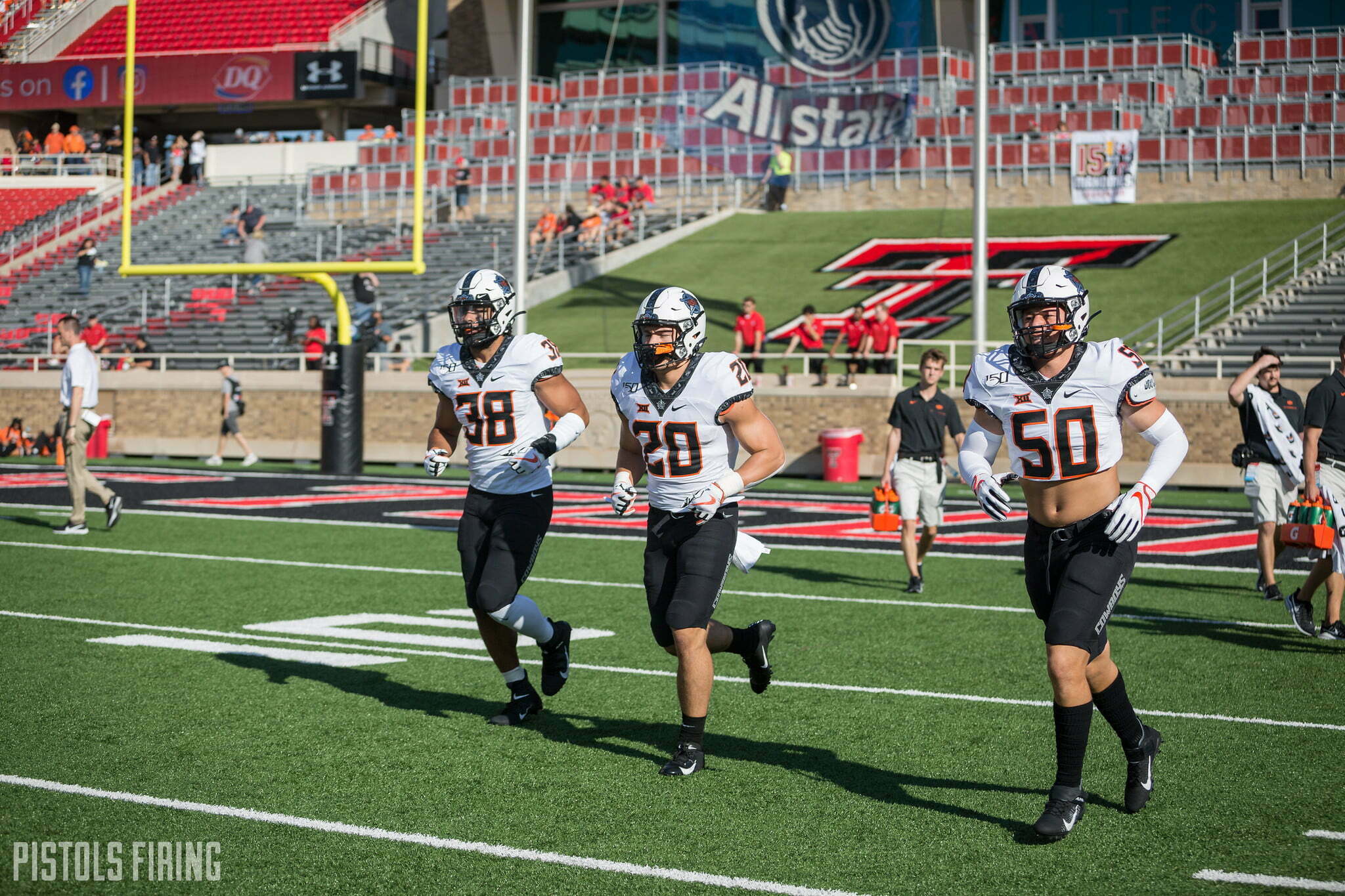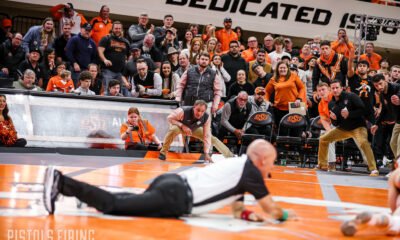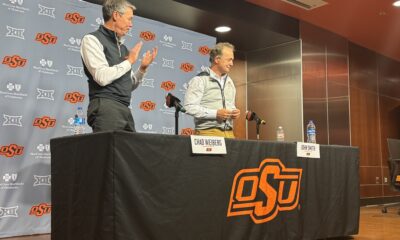Football
Burden of 2020 Season Could be on Players, and That’s Probably a Good Thing
The player empowerment movement continues (inadvertently).

As many have written, whether there’s a college football season is probably mostly up to whether 19- and 20-year-old college athletes want there to be a college football season. Or rather, whether their actions say they want there to be a college football season.
With COVID-19 positive tests popping as players return to school, doubt about whether there’s a season has once again been cast upon the college football landscape. How schools control those positive tests could determine how the season is played out. And how players interact away from their sports could determine how well schools are able to control those positive tests.
Here’s what Berry Tramel wrote last week.
OSU basketball coach Mike Boynton spoke bluntly about the problem of trying to keep young people social distanced.
“These are 18-, 19-year-old kids, and we can just be honest, right?” Boynton said. “Many times when we were 18, 19 years old, the moment we were told that we couldn’t do something, you were going to try to figure out how we actually could. And that’s not different now.
“So kids take chances. What we have to try to do is help them understand the severity and the risk that not for them, but for other people that they may encounter. We need to be clear … the virus is still very active. And it is still a very dangerous virus … so just constantly reminding them, it is not the time to go out to the bars and party.”
This is not an easy ask for young people. Heck, us older people have surrendered on social distancing at times over the last three months; some never took up the fight at all. [Oklahoman]
No matter what you believe about the virus or the science behind it, the reality here is that players are probably going to collectively determine the season. That’s a heavy weight to put on college students, but it’s also fitting that in the summer of player empowerment that the burden is being placed on players and not anybody else. Yes, administrators, doctors and scientists will ultimately make the final call, but they will all do so with a month or more of data that’s provided by … the players.
The last few months have revealed some of the discomfort around how all the money surrounding college football is completely dependent upon players who are not paid at all. This was highlighted back in April when Mike Gundy said that things needed to start ratcheting up again, “Because we need to continue to budget and run money through the state of Oklahoma.”
Gundy meant well, I think, but he unintentionally pulled back the curtain on college football’s dirtiest secret: That without players — who make nothing at all (though we can have the scholarship argument later on) — the money isn’t there for everyone else to thrive.
This isn’t necessarily bad — scholarships are no small (or cheap) thing — but it’s certainly something that’s going to have to be reckoned with in the near future. College football revenue has increased so much in such a short span of time that we don’t really know what to do with all the money or how all of this should function. As an aside: to think that college football and college cross country should be adjudicated by the same organization is comical.
So I think it’s fitting that the players sort of get to decide this based on how much they go out and how disciplined they are with their time. No small ask for a college student (or an adult!). I also think the players badly want to play. We underestimate how much competitors enjoy competing (no matter the benefit), and I think many of them (maybe the majority at a lot of places) will consider what’s at stake and choose wisely as long as they’re properly educated about what’s at stake.
Even then, it might not be enough to get the season in. But whether 12 games are played or 9 games are played or 0 games are played, the eventual outcome is now more or less in the hands of the stars of the show.
I have to say, it’s felt a little weird on the whole for us to say, “Well, there’s too much money at stake, this has to happen” at the potential expense of player health. It’s also felt a little weird to say, “You must isolate so the football can happen.” Again, it’s not necessarily wrong — it’s also likely what players desire — it just feels a little uncomfortable given exactly how much money is at stake. The flip side of that is that we do this every year with football anyway. Simply playing football comes at the expense of player health. So maybe the COVID-19 argument is a non-starter here in light of the argument of football safety on the whole.
Regardless, players will now inadvertently decide whether they play over the next few months. The ending there might not be what we (or the players) all want, but it certainly represents another shift in the power structure of college athletics as we move forward into an unknown future.

-

 Wrestling5 days ago
Wrestling5 days ago‘Made it Work’: How John Smith’s Coaching Career Began at 26 Alongside Teammate Kenny Monday
-

 Wrestling3 days ago
Wrestling3 days agoThe Top 5 Quotes from John Smith’s Retirement News Conference
-

 Football4 days ago
Football4 days agoWide Receiver Prospect Kameron Powell Commits to Oklahoma State
-

 Hoops4 days ago
Hoops4 days agoReport: Former Arkansas Guard Davonte Davis to Visit Oklahoma State






